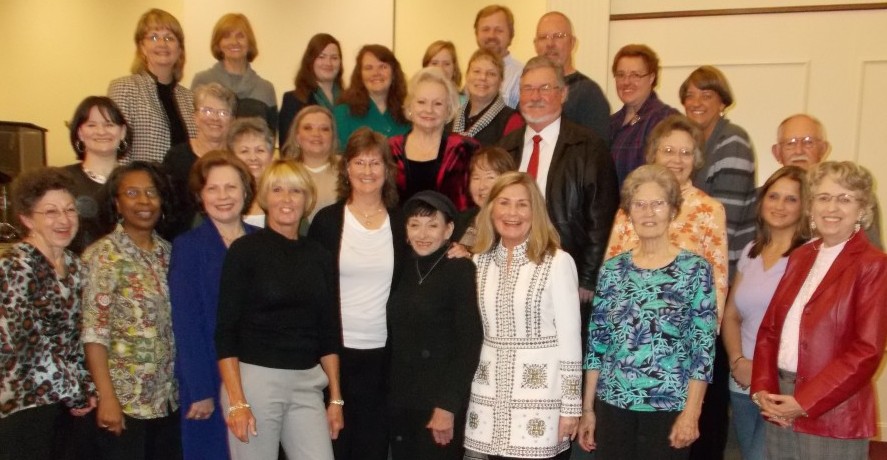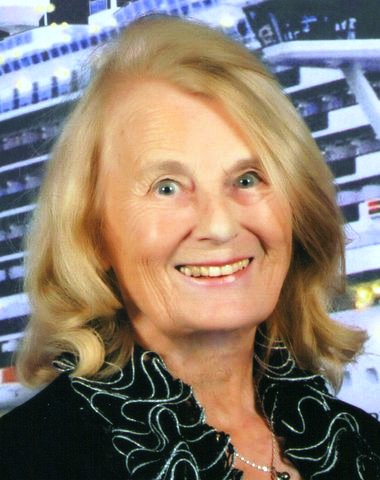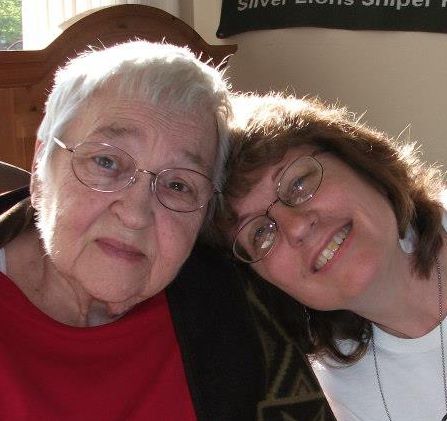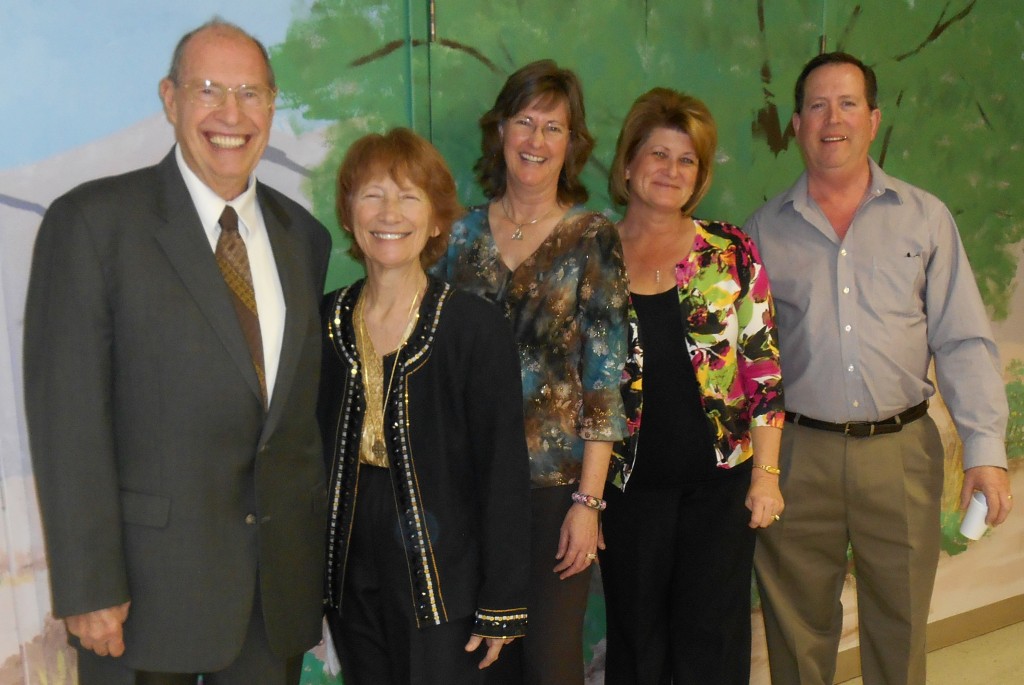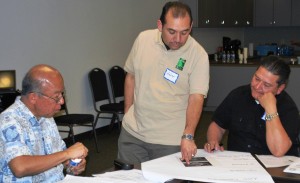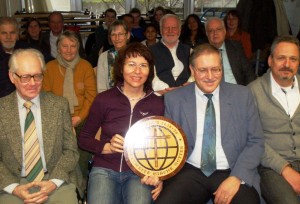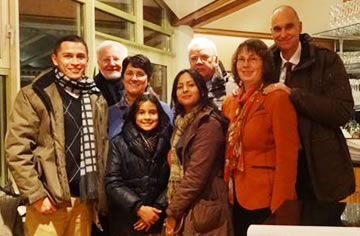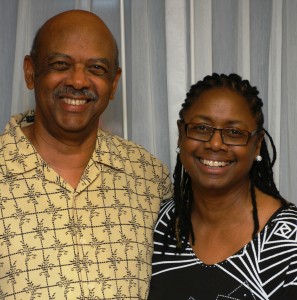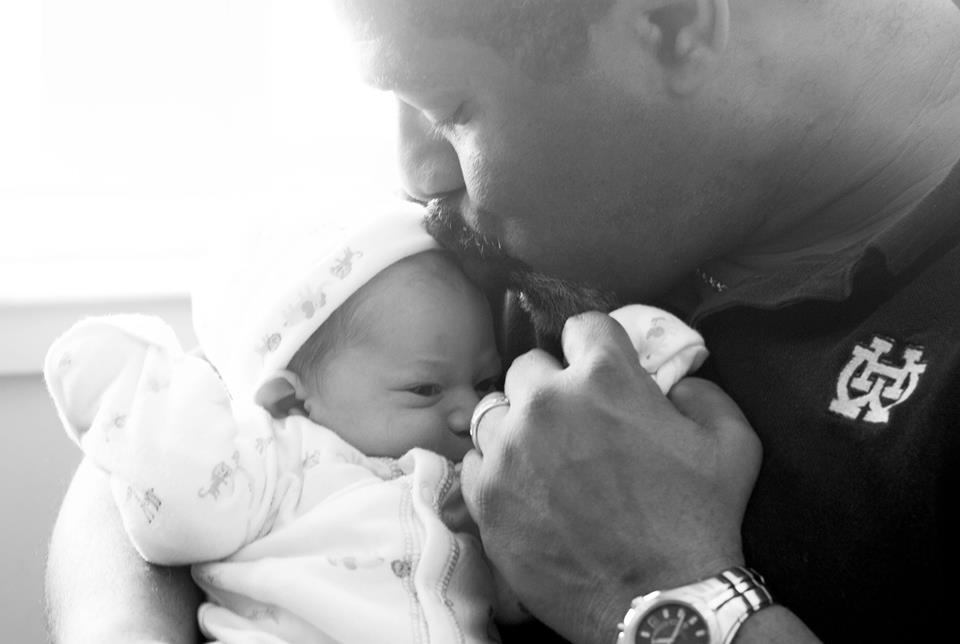This is part 5 of a 6-part series by Gary Deddo on the important, yet often misunderstood, topic of the kingdom of God. For additional articles in this series, click on the corresponding number: 1, 2, 3, 4, 6.
Last time we considered how the complex truth and reality of the already-but-not-yet kingdom has, unhelpfully, led some Christians toward triumphalism and others toward quietism. This time we’ll examine a better way to respond, in faith, to the complex truth regarding the kingdom of God.
Participation in Jesus’ ongoing kingdom ministry
Instead of triumphalism (activism that seeks to bring about the kingdom), or quietism (passivity that withdraws, leaving it all up to God), we are called to live hope-filled lives that embody real signs of the coming kingdom. Of course, such signs have limits—they do not build the kingdom, nor do they make it real and present. But signs do point beyond themselves to what is coming. They make a real difference here and now, even though they do not make all the difference. Signs make a relative difference, not an absolute difference. This accords with what God intends as the church lives in this present evil age.
Some who prefer either the triumphalist or quietist alternatives will object and say that setting out mere signs of the coming kingdom has little or no value. They say that signs are not worth the effort if they don’t bring about lasting change—if they don’t make the world a better place or, at least, bring others to faith in God. But what these objections overlook is that the partial, provisional and temporary signs that Christians can exhibit here and now are not to be regarded as separate from the coming kingdom. Why not? Because Christian action is participation in the continuing ministry of Jesus through the Spirit. By the Spirit we actually join with the King in what he is doing here and now even within this present evil age—an age that is passing away! The God of the coming kingdom can break into the present and use the partial, provisional and temporary witness of the church. The church’s witness makes a relative but real difference here and now although it does not make the absolute difference that the consummation of the kingdom will achieve.
Light from the coming kingdom reaches us and lights our path in this dark world. Like starlight piercing the darkness of the night, the church’s spoken and enacted signs point to the coming kingdom in full noonday sunlight. These pinpoints of light make a real difference, even if only partial, provisional and temporary. By the gracious action of God, our signs and witness are used by God’s Word and Spirit to put people into contact with Christ and his coming kingdom. God is at work even now before the kingdom reaches its consummation. We are ambassadors for Christ, God making his appeal through us (2 Corinthians 5:20). Preaching as used by the Spirit does enable people to enter into and become members of the coming kingdom, here and now! (Romans 1:16). Every simple cup of water given in Christ’s name will not go unrewarded (Matthew 10:42). So we shouldn’t regard the signs or witness of the church as being ethereal, mere symbols or gestures towards something absent and not yet real.
Christ joins our sign-work to his—using our witness to draw people into relationship with himself, then to come under his lordship, where they experience his joy, peace and hope in his final reign. This is so even though those signs do not convey the whole truth of the coming reality, but only point to it. They point forward as well as back to Jesus Christ, who has become Savior and King over all creation in his earthly life and ministry.
These signs are not mere ideas, words, concepts or individual, private, spiritual experiences. Christian signs embody, in time and space, in flesh and blood, a witness to who Jesus is and the nature of his coming kingdom. They take time and money and effort and skill, thought and planning, individual and corporate coordination. God can and does use them by his Spirit to serve a purpose—an actual introduction of persons to God in Christ. Such an introduction bears fruit in conversion that is evidenced in repentance and faith, and in lives lived out in hope of the coming kingdom.
So we commit to our Lord’s use our time, energy, resources, vocations and leisure. We allow concerns about our current world to take concrete shape in activities, events, involvement and engagement with one another within our church communities. But they also take shape in relation to those who are not yet part of those communities. Our embodied witness to Jesus can be personal and verbal, but it also should be public and social. We should make use of whatever resources we have at our disposal so that with everything we have, do and say, we broadcast on every channel available to us the same message of who God in Christ is and that his rule and reign is sure and is coming. We live now, even under fallen conditions, in communion with Christ and in hope of the full manifestation of his Lordship. We live in the hope of a renewed and thus a new heaven and earth in the age to come. We live in this age as if it were passing away—because under the impact of Jesus Christ, it is! We live now as if the kingdom is coming—because it is!
So our embodied Christian witness, although partial, provisional and temporary, is real in the sense that it affects our current situation and all our relationships, even if it does not embody itself the full reality of the coming kingdom that is not yet fully here. It is real in the sense that by the grace of God, we participate, in mustard-seed type of ways, in what God is now doing by the Spirit to point people to Jesus Christ and his coming kingdom. We can today experience some of the blessings of the reign of Christ and his kingdom at both the personal and social dimensions of life, as God allows.
The real manifested
To fill this out just a bit more, we can note that our actions do not establish or vindicate the reality of Christ’s lordship, rule and reign. God—Father, Son and Spirit—has already done that. The coming kingdom is real and fulfilled. Its coming has been guaranteed to us. We can count on it, and its coming doesn’t depend on us. This is a work of God. So if we, by our witness—by our embodied signs—do not actualize the kingdom of God nor make it progressively more real, what do we accomplish? The answer is that our embodied signs make manifest in small bits and pieces the coming kingdom. Our purpose and privilege now is simply and profoundly to be, in word and deed, witnesses to the reality of the kingdom!
What then will the end, the return of Christ, accomplish? His return does not make the kingdom finally real, as though it was only a potential up to the time of his return. It is, right now, fully real, actual. Jesus Christ is Lord and Savior now. He is reigning. But that kingdom is now hidden. The full effects of his reign are not exhibited in the present evil age. When Christ returns, the reality of the kingdom will then be fully manifested—be made obvious, will have its full effect. Christ’s second coming or appearance (his parousia) will be a revelation, manifestation, uncovering (an apocalypsis) of the truth and reality of who he is and what he has accomplished.
At that time, the truth and reality of who Christ is and what he has done for us and our salvation will be revealed to all. It will amount to the final unveiling of what took place in the Person and work of Christ. The glory of it all will shine forth everywhere so that it will have its full effect. The time for partial, provisional and temporary witness will be completed. The kingdom of God will no longer be hidden at all. We will enter the new heavens and earth. There will be no more need for witness, for we will all stand before the reality itself. That’s what Christ’s return will accomplish.
So the Christian life is not about making actual the potential of the kingdom of God. We are not tasked with closing the gap between the reality of the fallen world and the ideal of God’s kingdom on earth so that by our efforts God’s ideal finally supplants the reality of the broken and rebellious creation. No, the reality is that Jesus is King of kings and Lord of lords, and his kingdom is real and actual—although now hidden. This present evil age is passing away. We are now living in a kind of unreality, with a corrupted, twisted, distorted form of God’s good creation that Christ has won back, being victorious over the powers of evil and putting it back on track to serve its original purpose, to reach God’s final intention.
Through Christ, the entire creation is being freed from its bondage and groaning (Romans 8). Christ is making all things new. That is the decisive and determining reality. But that reality is yet to be fully manifest. Nevertheless, we can bear witness now in partial, provisional and temporary ways in every area of life to that coming reality as God’s Spirit moves us. In doing so, we are not bearing witness to a possibility, especially one that we make real, but to Christ and his kingship, which will be fully manifested one day. That reality is our sure hope—one that we live by today and every day.
The civic and political spheres
What are the civic and political implications for Christians who acknowledge Christ’s Lordship and hold the hope of the coming kingdom? The biblical revelation does not support the idea of a Christian “takeover” of any political party or any nation or institution outside the worshiping community. But neither does it call for non-involvement—what is called “separatism.”
Christ prayed that we not be taken out of this fallen and corrupted world (John 17:15). Members of ancient Israel, when in exile in a foreign land, were told to seek the welfare of the cities they inhabited (Jeremiah 29:7). Daniel served God in the midst of a pagan culture and contributed to it while being faithful to the God of Israel. Paul tells us to pray for civil authorities and to respect human authority that promotes good and hinders evil. He instructs us to maintain good reputations among those who are not yet believing. These admonitions indicate contact, involvement and even responsibility to our common citizenship and institutions, not complete separation.
Biblical teaching indicates that we are citizens of this age. But, at the same time, it announces that we are, more importantly, citizens of God’s kingdom. So Paul proclaims in his letters: “You are no longer strangers and aliens, but you are citizens with the saints and also members of the household of God” (Ephesians 2:19 NRSV throughout, except as noted), and says, “Our citizenship is in heaven, and it is from there that we are expecting a Savior, the Lord Jesus Christ” (Philippians 3:20). Christians have a new citizenship that takes unrivaled precedence over any current earthly citizenship. However, it does not obliterate our old citizenship. When jailed, Paul did not repudiate his Roman citizenship, but made use of it to secure his release. As Christians, our old citizenship is radically relativized—brought into submission to Christ’s reign. Here again we meet a complex situation; one that can lure us to seek a resolution or attempt a simplification. But faith, hope and love lead us to live in the complexity for the sake of our witness to the kingdom and the reign of Christ.
Dual citizenship
Following Karl Barth’s synthesis of biblical teaching, and mindful of church teaching down through the ages, it seems that those who belong to Christ and his kingdom in this present age simultaneously belong to two very distinct communities. We have dual citizenship. This complex situation seems unavoidable, because it aligns with the truth that there are two ages that overlap, but only one that will, in the end, prevail, namely, the age to come. Each of our citizenships has unavoidable responsibilities, and there is no guarantee that they won’t come into conflict. There is especially no guarantee that there will be no cost involved in seeking to be responsible to both. So Jesus tells his disciples, “As for yourselves, beware; for they will hand you over to councils; and you will be beaten in synagogues; and you will stand before governors and kings because of me, as a testimony to them” (Mark 13:9). Similar situations took place throughout the book of Acts, mirroring what happened to Jesus himself. So conflicts may arise between our dual citizenships that may be hard if not impossible to entirely resolve in this present age.
Relating the dual responsibilities around the one true center
It is important to discern how these two sets of responsibilities are properly interrelated. It is usually not helpful to think of them as competing, even if at times they come into conflict. Nor is it helpful to regard them as being ordered in a hierarchical layering, where there is always a first and then, subsequently, a second or third action or decision called for after the prior things are fully taken care of. In that case, many if not most secondary things will end up being neglected, rarely attended to.
Nor is it useful to use a slightly different hierarchical scheme—thinking that the secondary things are to be pursued in a way separate from the primary or first things. In this scheme, we make sure we take care of the first things of the church community, and then we also take care of the secondary things in the civic community, as if the secondary things are relatively independent, having their own norms or standards, ends or aims that determine what responsibility looks like in that sphere outside the church. Such an approach amounts to a compartmentalization that doesn’t do justice to the fact that the kingdom has broken into this age and so we live now between the times, in the overlap. The first things of the church’s witness always influence and shape how we engage the secondary things of our earthly commonwealth. The two sets of responsibilities overlap one another, with our hope and witness to the coming kingdom informing all we do, whether primary or secondary.
Given the lordship of Christ, the unity of God’s purpose for all creation and the consummation of all things under Christ as King of kings and Lord of lords, God’s single purpose stands at the center of all reality —at the center of both communities to which we belong. [1] All human activity ought to be arranged, organized, ordered and even made to serve that center. Think of the Triune God as being at the center of a series of circles all sharing that same center. Jesus Christ, with his coming kingdom, is this center. The church, which belongs to Christ, knows and worships him alone, stands in the innermost circle surrounding the center. The church knows this center. It knows the character of the coming kingdom. It has a sure foundation for its hope and a grip on the nature of love and righteousness and justice and even of genuine human community in Christ. Its ministry is to proclaim that center and invite others to come into that innermost circle, because that’s the source of their life and hope. All should belong to both communities! The center of their existence is the center of the church’s existence, even if their current allegiance is only and primarily to the wider civic community. God in Christ according to his purposes is the center of all created reality, of both communities. Jesus Christ is Lord and Savior of all creation—of every power and authority, whether they know it or not.
The civic community outside the church can be thought of as a surrounding circle located at a greater distance from the center than the inner circle of the church community. It does not know or acknowledge the center, and its God-given mission is not to proclaim that center. Its purpose is not to become or replace the church community (as was attempted by Nazi Germany and assented to by the leaders of the German state church). Nor is the church to become the larger community, taking over its functions. But the surrounding civic community does have the same center, and its destiny is bound up entirely with Jesus, who is Lord over all time and space, over all history and all authority. Our common civic community is not independent of the same center, the same living reality which the church acknowledges and gives ultimate allegiance to.
So the church’s responsibility, with its individual members who live in both circles, is to inform and continually remind that wider circle of the central reality of Jesus and his coming reign. It does so by seeking to embody within that wider community ways of acting, functioning, being, and relating that, although indirectly, point to that same central reality. These ways, embodied in the wider circle of responsibility, will have a resonance or be analogous to the ways of the church. But they will only be able to reflect them indirectly, dimly and likely inconsistently and not without some ambiguity. But that is to be expected. The wider community is not the church and is not expected to be the church. But it is to continually benefit from the church as its members seek to be responsible to it also, as unto the Lord.
Analogous signs of preservation
The fact that we are operating in this present evil age will be especially evident in this wider sphere of citizenship to those who hope in the age to come and know and worship the Living Center. The theological foundations and spiritual resources of open communion with God through Christ will not be apparent or made readily available through those civic activities dedicated to serving the surrounding community. But the practices, standards, principles, rules, laws, ways of being and relating in that wider sphere can more or less be aligned with or become somewhat parallel to the life God has for us in Christ. Christian influence will seek to engage the wider sphere of responsibility in a prudent manner, attempting to realize at any given moment the most it can of the patterns of organization and principles of behavior and practice that best align with God’s purpose and ways, ways that will one day be manifest to the whole world. We can say that the church serves as a kind of conscience for the wider community. It seeks to prevent the surrounding community from falling further away from God’s purpose and design for humanity. It does so not just through its pronouncements but through personal involvement that will also, no doubt, include personal cost. By word and deed, it serves as a kind of preservative, even though, at times, its wisdom, warnings and involvement may go unheeded or be rejected.
Infusing indirect signs of hope
The members of the church can also inject into the surrounding culture social material products as well as patterns of organization and production that are informed by the gospel of Christ—as a kind of leaven, or light. But such a witness will only be able to serve as an indirect pointer that will only be analogous to the church’s direct ministry and message concerning God in Christ and the presence and coming of his kingdom. These creative efforts, which serve as indirect signs, should not be substituted for the life of the church or for its central message and ministry. Jesus or God or Scripture will likely not be mentioned at all. The source behind these actions will rarely (if at all) be mentioned, although what is done or accomplished will have the aroma of Christ about it.
There will be limits to such indirect witness. It will likely be somewhat ambiguous compared to the church’s direct witness and ministry. The results will likely be inconsistent compared to the church’s primary word and witness. Sometimes what Christians propose for the common good will not be allowed or be severely restricted by various public or private powers, influences and authorities. At other times these proposals may be allowed to persist in a way that leads to having wide, kingdom-directed impact. The ministry of Chuck Colson’s Prison Fellowship serving in state or federal prisons is a good example of this.
Just how much influence might be allowed is unpredictable. Some successes may be disappointingly temporary. And there will be failures. But those who gladly receive even these indirect witnesses that conform at some distance to God’s will and ways, will be drawn by them to the heart of what the church has to offer. They will serve as a kind of pre-evangelistic preparation.
The primary responsibility of the surrounding civic community is to provide a good and just order so that, whether intended or not, the church can carry out its essential ministry as the church, and so that its members can be allowed to live out their indirect witness within the wider community. Much of its aim will be the establishment of the rule of law, of public justice. It will aim for the common good. It will protect the weak from being taken advantage of by the strong.
This seems to be what Paul had in mind when he described the proper responsibilities of the secular authorities in Romans 13. It may also reflect what Jesus meant when he said: “Render to Caesar the things that are Caesar’s, and to God the things that are God’s” (Matthew 22:21 ESV) and what Peter wrote: “For the Lord’s sake accept the authority of every human institution, whether of the emperor as supreme, or of governors, as sent by him to punish those who do wrong and to praise those who do right” (1 Peter 2:13-14).
_____________
[1] The following section makes use of much of the biblical/theological synthesis found in Karl Barth’s little book, Community, State and Church: Three Essays, especially the third essay, “The Christian Community and the Civil Community.”


